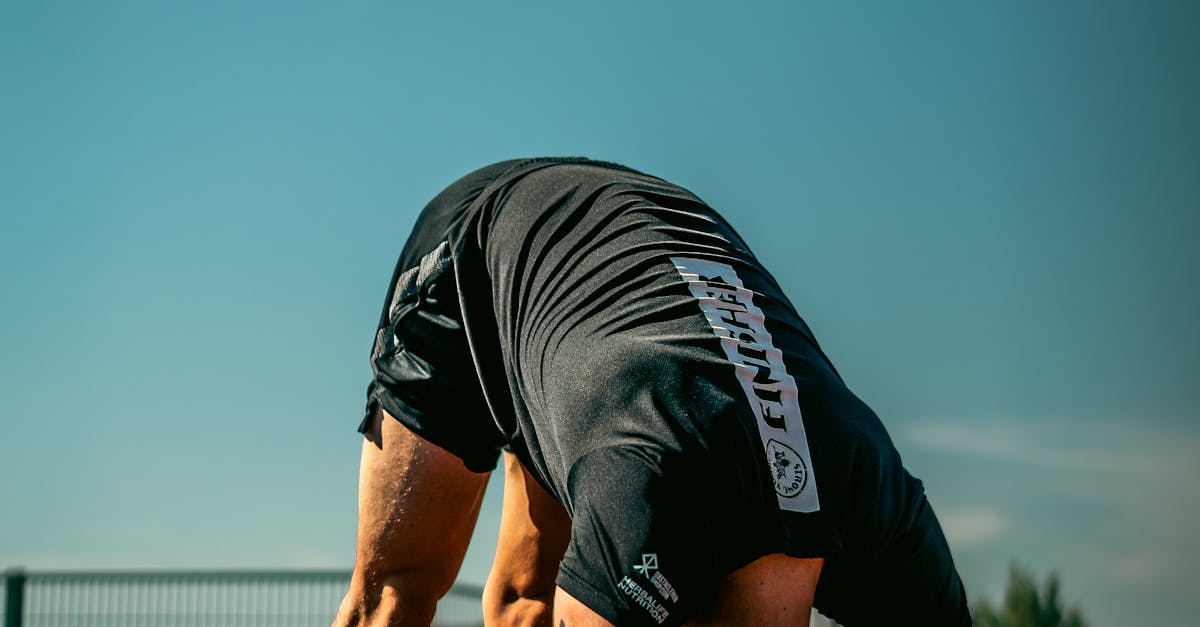Hip Stiffness After Running: Managing Discomfort and Recovery
Unlocking the Secrets of Hip Stiffness After Running: Prevention, Treatment, and Recovery

Many runners experience hip stiffness after running, which can be a frustrating and painful problem. Hip stiffness can be caused by a variety of factors, including muscle strains, overuse, and biomechanical factors. While hip stiffness can be prevented and treated, it is important to understand the causes of hip stiffness in order to develop an effective treatment plan.
This article will explore the causes of hip stiffness after running, provide preventive measures, discuss treatment options, and guide runners through a structured recovery process. By understanding the causes of hip stiffness and following the tips in this article, runners can reduce their risk of developing hip stiffness and improve their overall running performance.
Hip stiffness after running is a common problem that can affect runners of all levels. While hip stiffness can be a nuisance, it can also be a sign of a more serious underlying problem. If you are experiencing hip stiffness after running, it is important to see a doctor to rule out any potential underlying medical conditions.
1. Understanding Hip Stiffness After Running
Understanding Hip Stiffness After Running
Hip stiffness after running is a common problem that can affect runners of all levels. While hip stiffness can be a nuisance, it can also be a sign of a more serious underlying problem. If you are experiencing hip stiffness after running, it is important to see a doctor to rule out any potential underlying medical conditions.
There are a number of factors that can contribute to hip stiffness after running, including:
- Muscle strains: The hip muscles can be strained due to overuse or improper running form. This can lead to pain, stiffness, and weakness in the hip.
- Overuse: Running too much or too often can put excessive stress on the hip joint, leading to stiffness and pain.
- Biomechanical factors: Certain biomechanical factors, such as leg length discrepancies or improper foot mechanics, can put extra stress on the hip joint, leading to stiffness and pain.
It is important to understand the causes of hip stiffness after running in order to develop an effective treatment plan. By addressing the underlying cause of hip stiffness, you can reduce your risk of developing hip stiffness in the future and improve your overall running performance.
2. Preventive Measures for Hip Stiffness

Preventive Measures for Hip Stiffness
Hip stiffness after running is a common problem, but it can be prevented by following a few simple tips. Here are some preventive measures for hip stiffness:
- Warm up properly: Warming up before running helps to prepare the muscles for activity and reduce the risk of injury. Be sure to include dynamic stretches in your warm-up, such as leg swings, lunges, and hip circles.
- Maintain flexibility: Flexible muscles are less likely to be injured. Incorporate stretching into your regular routine, focusing on the muscles that are used in running, such as the hamstrings, quadriceps, and calves.
- Use proper running form: Running with proper form helps to reduce stress on the hips and other joints. Be sure to keep your back straight, your shoulders relaxed, and your feet landing directly below your hips.
- Strengthen your hip muscles: Strong hip muscles help to stabilize the hip joint and reduce the risk of injury. Incorporate hip strengthening exercises into your regular routine, such as squats, lunges, and hip extensions.
- Wear proper footwear: Wearing supportive running shoes can help to reduce stress on the hips and other joints. Be sure to choose shoes that are designed for your foot type and running style.
By following these preventive measures, you can reduce your risk of developing hip stiffness after running and improve your overall running performance.
3. Treatment Options for Hip Stiffness
Treatment Options for Hip Stiffness
If you are experiencing hip stiffness after running, there are a number of treatment options available. Here are some of the most common treatment options for hip stiffness:
- Rest: Rest is one of the most important treatment options for hip stiffness. This gives the hip joint time to heal and recover. Avoid activities that aggravate your hip stiffness, and try to rest as much as possible.
- Ice: Applying ice to the hip joint can help to reduce pain and inflammation. Ice packs can be applied for 15-20 minutes at a time, several times a day.
- Compression: Compression can help to reduce swelling and pain in the hip joint. Compression garments, such as elastic bandages or compression shorts, can be worn to provide support and reduce inflammation.
- Physical therapy: Physical therapy can help to improve flexibility, range of motion, and strength in the hip joint. A physical therapist can also teach you exercises to help prevent hip stiffness from recurring.
In some cases, more aggressive treatment options may be necessary, such as corticosteroid injections or surgery. However, these options are typically only considered if conservative treatment methods have failed to relieve hip stiffness.
4. Recovery Strategies for Hip Stiffness

Recovery Strategies for Hip Stiffness
Once you have started treatment for your hip stiffness, it is important to follow a structured recovery process to ensure that your hip heals properly and to prevent the stiffness from recurring. Here are some recovery strategies for hip stiffness:
- Gradual return to running: It is important to gradually return to running after hip stiffness in order to avoid re-injury. Start by running for short periods of time and gradually increase the duration of your runs as your hip pain and stiffness improves.
- Listen to your body: It is important to listen to your body and rest when necessary. If you experience any pain or discomfort in your hip, stop running and rest. Pushing yourself too hard can worsen your hip stiffness and delay your recovery.
- Cross-train: Cross-training can help to maintain your fitness level while you are recovering from hip stiffness. Choose low-impact activities that do not aggravate your hip pain, such as swimming, biking, or elliptical training.
- Strengthen your hip muscles: Strengthening the muscles around your hip joint can help to improve stability and reduce the risk of re-injury. Incorporate hip strengthening exercises into your regular routine, such as squats, lunges, and hip extensions.
- Stretch: Stretching can help to improve flexibility and range of motion in your hip joint. Incorporate stretching into your regular routine, focusing on the muscles that are used in running, such as the hamstrings, quadriceps, and calves.
By following these recovery strategies, you can help to ensure that your hip heals properly and that you can return to running pain-free.
5. Additional Tips for Managing Hip Stiffness
Additional Tips for Managing Hip Stiffness
In addition to the preventive measures, treatment options, and recovery strategies discussed above, there are a number of other things you can do to help manage hip stiffness. Here are some additional tips for managing hip stiffness:
- Stretching exercises: Stretching the muscles around your hip joint can help to improve flexibility and range of motion. Some helpful stretches for hip stiffness include the quad stretch, the hamstring stretch, and the hip flexor stretch.
- Foam rolling: Foam rolling can help to release tension in the muscles around your hip joint. To foam roll your hip, place the foam roller on the ground and lie down with your hip on the roller. Roll back and forth over the roller, applying pressure to the muscles around your hip.
- Seek professional advice: If you are experiencing persistent hip stiffness that does not improve with home treatment, it is important to seek professional advice. A doctor or physical therapist can help to diagnose the cause of your hip stiffness and recommend the best course of treatment.
By following these additional tips, you can help to manage hip stiffness and improve your overall running performance.
Quiz
- Which of the following is NOT a cause of hip stiffness after running?
- Muscle strains
- Overuse
- Biomechanical factors
- Dehydration
-
True or False: Warming up before running can help prevent hip stiffness.
-
Which of the following is a treatment option for hip stiffness?
- Rest
- Ice
- Compression
- All of the above
-
True or False: It is important to gradually return to running after hip stiffness.
-
Which of the following is an additional tip for managing hip stiffness?
- Stretching exercises
- Foam rolling
- Seeking professional advice
- All of the above
Answer Key
- Dehydration
- True
- All of the above
- True
- All of the above
